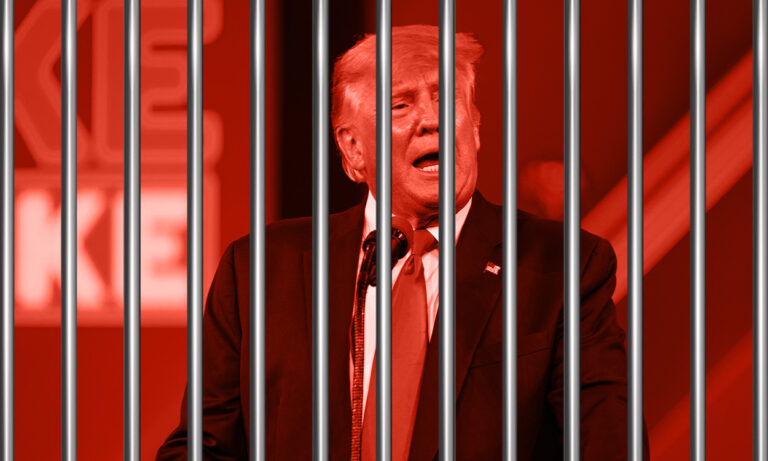Donald Trump’s arraignment: what does it mean and how will it impact his 2024 Presidential bid?

Today, 4 April 2023, former President Donald Trump will be arraigned in New York City, and the entire world will hear the details of the criminal charges he’s facing. And no, the charges have nothing to do with Trump’s direct involvement in the 2021 January insurrection on the Capitol in Washington.
Rather, they’re in relation to an incident involving the former commander-in-chief covering up a lump of “hush money” paid to ex-porn star Stormy Daniels in exchange for her silence over an alleged sexual encounter.
When Trump was officially indicted on 30 March by the Manhattan grand jury, he became the first current or former president to ever face criminal charges in the history of the US. He was never going to go down easily…
So, with the court proceedings kicking off today, we thought it’d be good to run down all of the most important details of the hearing: what the charges will consist of, how Trump will plead, what the next steps might be, and how this trial could impact Trump’s plans to run in the 2024 Presidential election.
What are the criminal charges Donald Trump is facing?
While we still don’t know the exact details surrounding the criminal charges facing Trump, we can take an educated guess. According to the BBC, the crux of the case revolves around a wire transfer of $130,000 (£105,000) by the businessman’s former attorney, Michael Cohen, to adult film star Stormy Daniels before the 2016 presidential election.
Trump allegedly orchestrated the payment in order to stop Daniels from going public and telling the press about her sexual encounter with him. Since the investigation began, Trump has vehemently denied having sex with the woman.
Daniels, on the other hand, insists that, having met Trump in 2006, the pair had sex in a hotel room in Lake Tahoe.
While hush money deals aren’t technically illegal, Manhattan prosecutors have alleged that business records may have been falsified in relation to the payment. Reports made by The Independent imply that Trump will face 34 felony counts of business fraud.
How will Trump plead?
Trump’s lawyers have made it blatantly clear that the former president will be pleading not guilty. The businessman has been extremely vocal about his feelings on the matter, posting regularly on his very own social media platform, TRUTH Social. He’s repeatedly called the indictment a “witch hunt” and is continuing to parrot 2024 election rhetoric.
What are the next steps for Trump following the arraignment?
Having travelled from his home in Mar-a-Lago to New York, Trump is expected to surrender himself at the office of Manhattan district attorney Alvin Bragg. Once fingerprinted and processed by officials, he will be considered under arrest and in custody. He will then be arraigned in court—meaning the charges will be read out and he will plead. It’s then expected that he will be released on bail and return to Florida, as reported by the BBC.
Following all of this, pre-trial proceedings will begin, with the actual trial not due to occur until much later this year. Realistically, Trump will spend this time trying to discredit anyone attached to the charges and trial, while still enthusing his political base ahead of next year’s election.
How will Trump’s indictment impact his campaign for the 2024 Presidential elections?
While Trump lives in his own world of fantasy, make-believe and lunacy, there are going to be some consequences to his indictment, and subsequently these consequences may or may not impact his bid for re-election.
It’s a complicated matter, because on one hand, the Constitution does not require that the president be free from indictment, conviction or prison. In fact, it states that a person under indictment or in prison may still run for the office and may even serve as president. Bizarre, I know.
On the other hand, Trump might find it hard to embolden support behind bars. Of course, there is also the possibility that the former president’s arrest could further heighten Republican rhetoric regarding the Democrat’s takedown of Trump, and it’s also true that Make America Great Again (MAGA) fans have always been a faithful people, stating that Trump could do pretty much anything and they’d still support him. So, it’s really a guessing game as to how these charges might impact Trump’s campaign bid.
This all being said, while this trial may result in being nothing more than a symbolic slap on the wrist, it’s a serious move in the right direction—holding public figures accountable, no matter how big their ego may be.





